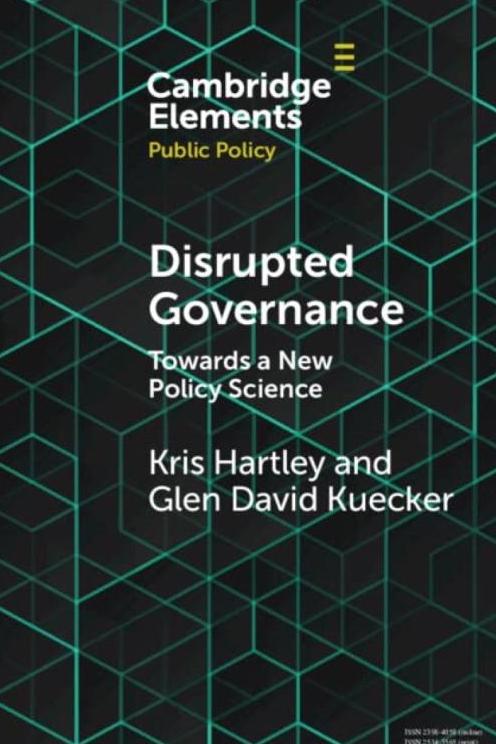Thank you for your message. The IPPA team will get back to you shortly. You first need to login here.

Disrupted governance: Towards a new policy science (2021)
(Publisher : Cambridge University Press)
Author(s) : Kris Hartley, Glen D. Kuecker
Kris Hartley is an Assistant Professor of Public Policy and Program Leader of the Masters of Social Sciences in Development Studies in the Department of Public and International Affairs at City University of Hong Kong. He researches global-to-local policy transfer in the application of technology to sustainability transitions and has published books with Cambridge University Press and Routledge Press.
Glen D Kuecker: His current interests focus on contemporary history, especially the problem of how humanity will weather the perfect storm of multiple, large-scale, global, and concomitant crises, including climate change, thermodynamics (energy), food insecurity, demographic transformations (population growth and aging, and rapid urbanization) environmental/ecological degradation, and economic stress.
The book explores the uncertain future of public policy practice and scholarship in an age of radical disruption. The authors argue that an anachronistic instrumental rationalism underlies contemporary policy logic and limits efforts to understand new policy challenges and searches for a solution.




